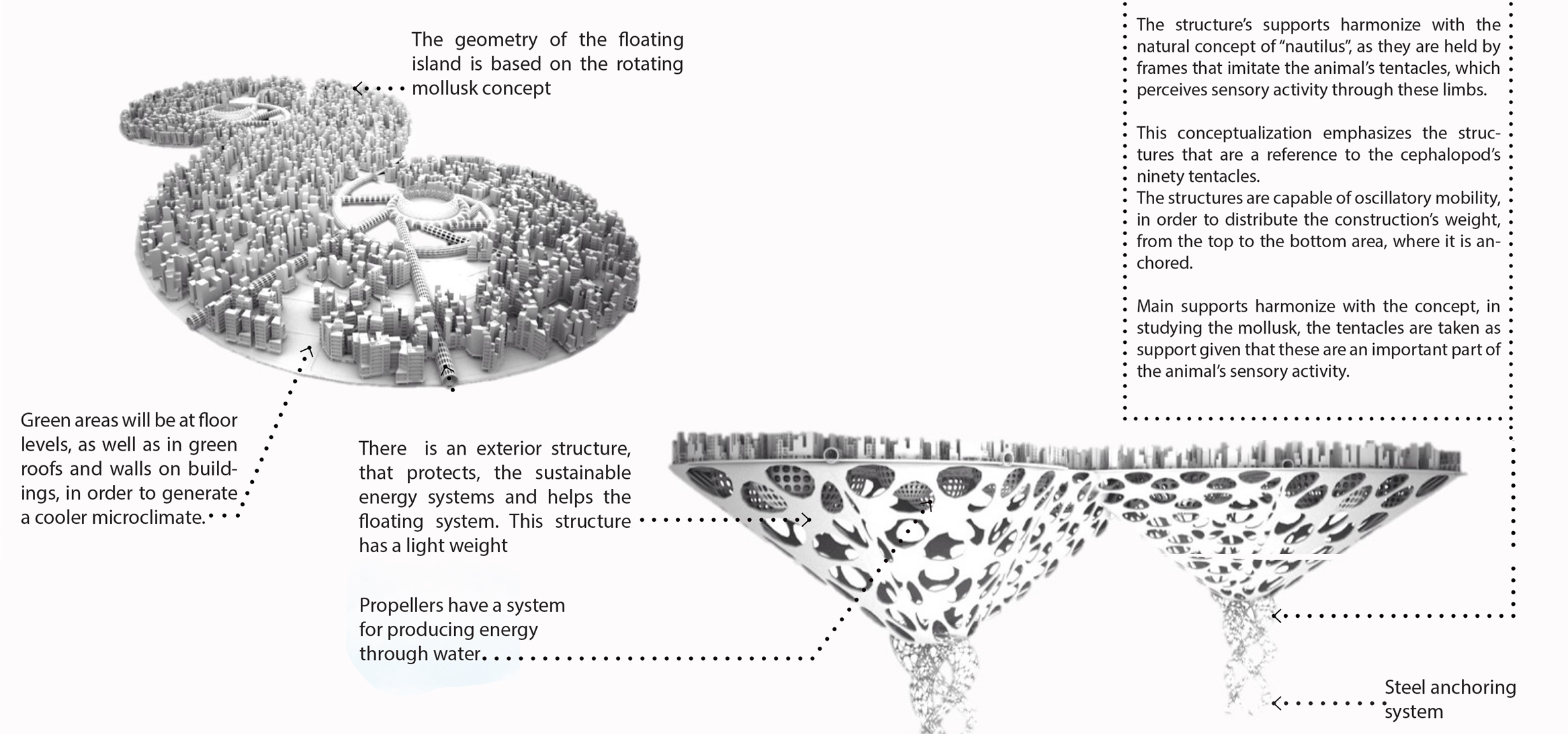Architecture Architecture
Creating new urban connections, designing cities of the future





MW Bus station
Fernanda Orviz
Jacques Rougerie Foundation
Gulf of Carpentaria
2015
Art Direction
Description: Nautilus City Project Architect: Arq. Fernanda Orviz
Due to the continuous deteriorating conditions of our environment, a
competition project was born that could lead us to search for viable alternatives which also where capable in turn to adapt to the aforementioned changing conditions, thus the Jacques Rougerie Competition was
launched which is indeed a great opportunity to explore new frontiers
for future development.
The main objective was to create a self-sustainable city, that could be
replicated and transportable. A floating city that could travel across the
sea. the transportable city would be self-sustainable to create as less environmental damage as possible and produce stable life quality that makes
possible for humans to interact with the sea in a different way.
Nautilus city project is inspired by the cephalopod mollusk, conveying the characteristics of this marine species to a perspective of aquatic construction.
The shell of a nautilus, divided by its logarithmic plane of symmetry, produces two
halves that are a classic example of the equiangular spiral, a prodigy of nature.
The concept is based on a study of the mollusk’s swim motion to generate the
growth spiral, considering the mollusk’s shell as the basis for the project’s figure.
The characteristics of the main form was generated by taking one of the halves as
reference, said half generates a semicircular movement when it rotates based on its
movement.
Forming a sort of container in its initial and final movement, creating a sort of complementary geometry as a mirror, thus creating a unit
Concept

System

Zoning

Share on

